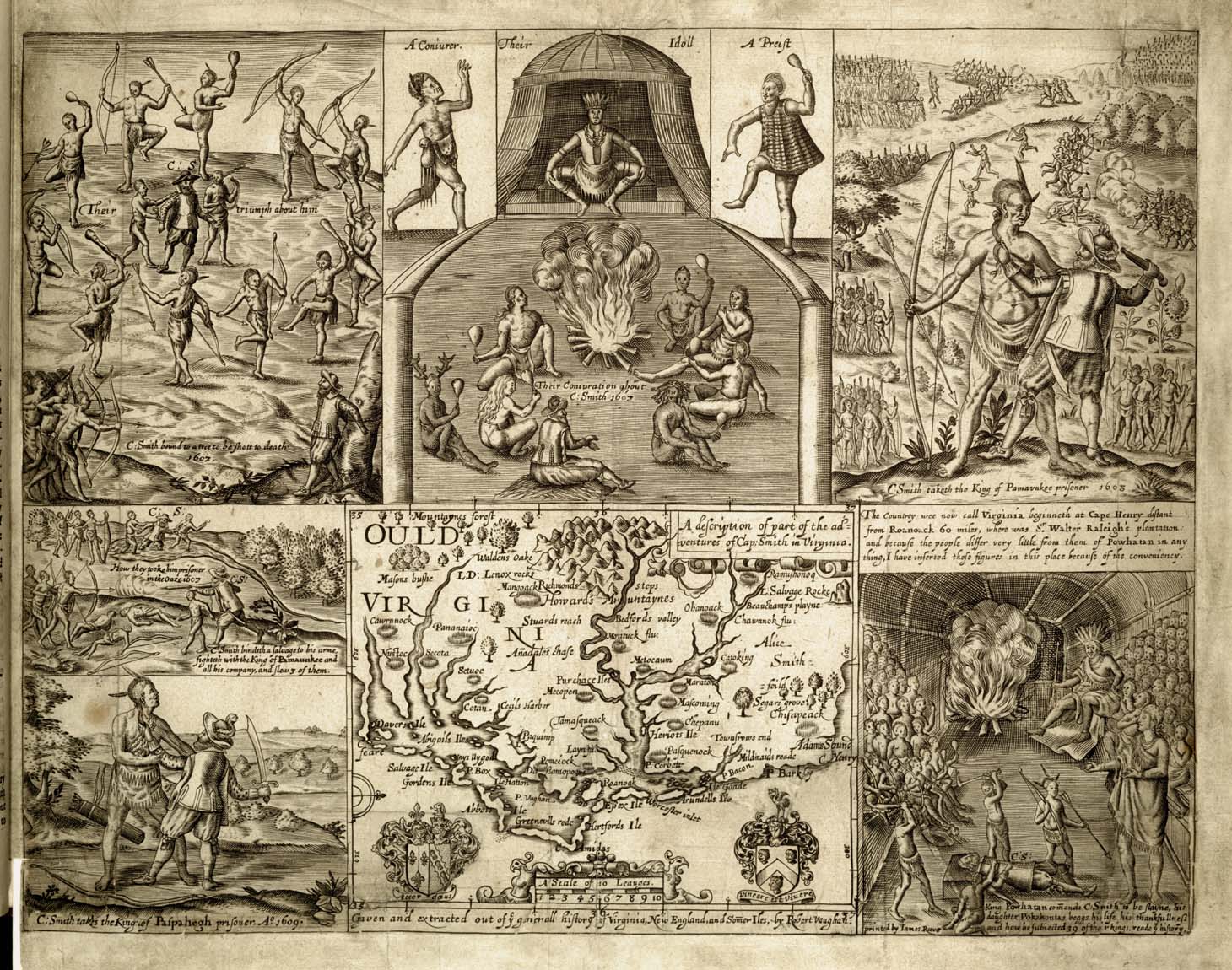
Reading through Captain John Smith's* History of Virginia, New England, and the Summer Isles, first published in 1624, I became mired in the excess of testimonials that preface the work. As I perused the glowing remarks of Smith's endeavor I realized I'd seen this sort of thing before.
They're book blurbs.
To give an example (one of the shortest of the four pages of blurbs in this seventeenth-century piece - note: about the spelling, regular English spelling didn't happen until the eighteenth century. In the 1600s "f" was often "s," "i" often "j," and "v" often "u.")
To my worthy friend Captaine Iohn Smith. How great a great of knowledge had wee loft, Both of Virginia and the Summer Ifles, Hand not thy caerfull diligence and coft Inform’d vs thus, with thy industrious stile! Like Caefar now thou wri’ft what thou haft done, Thefe acts, this Booke will lieu wile ther’s a Sunne. Edw: Worfeley.
Quite the endorsement. If anyone ever compared my writing to Caesar's in a blurb, I don't know what I'd make of it. And a work that will live as long as the sun shines? Impressive.
With the rise of the Kindle and e-books much buzz in the writing world focuses on how much have changed in the life of print, but reading these early modern blurbs made me realize just how much remains the same.
*A note on Smith's exploits. Even without taking the "blurbs" into consideration, John Smith was a notorious self promoter. He's most famous known in American mythology for being "rescued" by Pocahontas, daughter of Powhatan - the powerful leader of the Powhatan Confederacy. Smith knew how to spin a good tale.

But this (see above image) never happened. Smith capitalized on romantic images of "New World," and particularly sexually exploitative ideas about indigneous women, in order to puff up his own adventures for public consumption. Though many people believe, and have been further convinced by Disney, that some romantic element played into the Smith/Pocahontas episode, that story is the Englishman's own well-deployed smoke and mirrors.
(The early American historian's nemesis: Walt Disney.
This film makes me cringe so often, it's painful!)
Pocahontas would have been about eleven years old at the time of this encounter, and the ceremony that took place wasn't a near-execution, but an adoption ritual in which Smith was given kinship to the Powhatan becoming a brother/father to Pocahontas (a relationship Pocahontas invokes when he runs into Smith in England much later in life).
You have my imagination stirred. I can't wait to see what you do with this research you are doing. And how cool that you uncovered the birth of blurb! I'm always startled, I don't know why, at how little man changes over time.
ReplyDelete